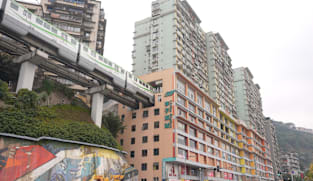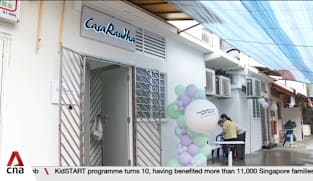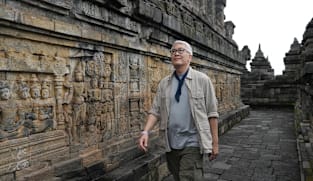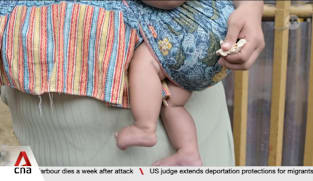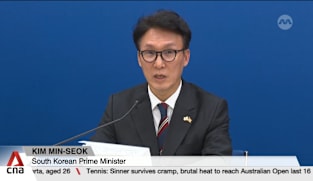Committee of Supply 2024 debate, Day 6: Masagos Zulkifli on stronger families as building blocks for ecosystem of care
Strong families are the building blocks for an ecosystem of care as they help to ensure the health of their children and are pivotal to supporting seniors to age well, said Second Minister for Health Masagos Zulkifli. Speaking in Parliament on Wednesday (Mar 6), he stressed that ageing well starts from the home, with families as the first bastion of care. To support these aspirations, the Government will dedicate at least S$3.5 billion over the next decade to support the implementation of Age Well SG, of which S$1.9 billion will be dedicated to the Ministry of Health’s (MOH) initiatives. Mr Masagos said various ministries and partner agencies will work together to enable seniors to lead vibrant and fulfilling lives in the community with their families. “The whole village will work together to realise the Age Well SG plans,” he said. Firstly, the Government will invest in Active Ageing Centres (AACs) to enable seniors to be engaged and connected with their friends and families. The AACs are expanding the quality and range of their programmes and adapting their offerings to suit the preferences of seniors. The network of AACs is also being scaled up. There are 157 AACs and these have attracted more seniors - from 17,000 in 2021 to more than 49,000 seniors in 2022. The Government will expand the network of AACs to 220 by the end of 2025. This means that by 2025, eight in 10 seniors will have access to AAC activities near their homes. Secondly, under Age Well SG, all seniors will be supported within the community. Together with volunteer ambassadors, the Silver Generation Office has engaged more than 330,000 seniors in the past four years and helped to connect them to community events or activities organised by AACs, such as communal dining. Thirdly, the Government will enable seniors to be active and move around their neighbourhoods with ease by enhancing the infrastructure. To support families looking after seniors with care needs, MOH has targeted grant schemes to defray caregiving expenses, especially for the lower-income group. It will improve existing services and pilot new care models. One of them is an ongoing pilot HPC+ that assists seniors with daily activities. As of January this year, it has 328 clients enrolled. Mr Masagos said even as the Government invests in support for seniors, it is also enhancing support for young families to have healthy and happy lives. A task force on Child and Maternal Health and Well-being has developed an action plan. Its recommendations have been translated into 48 initiatives; 28 of them have been or are being implemented, while the remainder are under review in preparation for launch. A detailed report will be shared later this year. One of these recommendations is to enhance support for couples from pre-conception and pregnancy to parenthood. To increase access to antenatal care, the Government will be piloting antenatal education classes for parents within the community. To support and celebrate active fathering, the Government is strengthening the participation of fathers in parents’ support groups in schools. Mr Masagos stressed that families are fundamental to enabling seniors to age well and to fostering a nurturing environment for children to grow, learn and thrive. “We will continue to strengthen support for families. Together, we can build a society where every family is empowered to grow and age well and enjoy a life of health and well-being,” he said.
Strong families are the building blocks for an ecosystem of care as they help to ensure the health of their children and are pivotal to supporting seniors to age well, said Second Minister for Health Masagos Zulkifli. Speaking in Parliament on Wednesday (Mar 6), he stressed that ageing well starts from the home, with families as the first bastion of care. To support these aspirations, the Government will dedicate at least S$3.5 billion over the next decade to support the implementation of Age Well SG, of which S$1.9 billion will be dedicated to the Ministry of Health’s (MOH) initiatives. Mr Masagos said various ministries and partner agencies will work together to enable seniors to lead vibrant and fulfilling lives in the community with their families. “The whole village will work together to realise the Age Well SG plans,” he said. Firstly, the Government will invest in Active Ageing Centres (AACs) to enable seniors to be engaged and connected with their friends and families. The AACs are expanding the quality and range of their programmes and adapting their offerings to suit the preferences of seniors. The network of AACs is also being scaled up. There are 157 AACs and these have attracted more seniors - from 17,000 in 2021 to more than 49,000 seniors in 2022. The Government will expand the network of AACs to 220 by the end of 2025. This means that by 2025, eight in 10 seniors will have access to AAC activities near their homes. Secondly, under Age Well SG, all seniors will be supported within the community. Together with volunteer ambassadors, the Silver Generation Office has engaged more than 330,000 seniors in the past four years and helped to connect them to community events or activities organised by AACs, such as communal dining. Thirdly, the Government will enable seniors to be active and move around their neighbourhoods with ease by enhancing the infrastructure. To support families looking after seniors with care needs, MOH has targeted grant schemes to defray caregiving expenses, especially for the lower-income group. It will improve existing services and pilot new care models. One of them is an ongoing pilot HPC+ that assists seniors with daily activities. As of January this year, it has 328 clients enrolled. Mr Masagos said even as the Government invests in support for seniors, it is also enhancing support for young families to have healthy and happy lives. A task force on Child and Maternal Health and Well-being has developed an action plan. Its recommendations have been translated into 48 initiatives; 28 of them have been or are being implemented, while the remainder are under review in preparation for launch. A detailed report will be shared later this year. One of these recommendations is to enhance support for couples from pre-conception and pregnancy to parenthood. To increase access to antenatal care, the Government will be piloting antenatal education classes for parents within the community. To support and celebrate active fathering, the Government is strengthening the participation of fathers in parents’ support groups in schools. Mr Masagos stressed that families are fundamental to enabling seniors to age well and to fostering a nurturing environment for children to grow, learn and thrive. “We will continue to strengthen support for families. Together, we can build a society where every family is empowered to grow and age well and enjoy a life of health and well-being,” he said.








